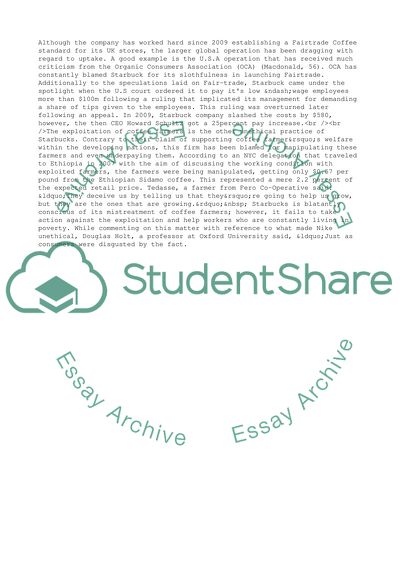Cite this document
(Ethics Problems of Starbucks Case Study Example | Topics and Well Written Essays - 1842 words, n.d.)
Ethics Problems of Starbucks Case Study Example | Topics and Well Written Essays - 1842 words. Retrieved from https://studentshare.org/business/1818582-ethics-problems-of-starbucks
Ethics Problems of Starbucks Case Study Example | Topics and Well Written Essays - 1842 words. Retrieved from https://studentshare.org/business/1818582-ethics-problems-of-starbucks
(Ethics Problems of Starbucks Case Study Example | Topics and Well Written Essays - 1842 Words)
Ethics Problems of Starbucks Case Study Example | Topics and Well Written Essays - 1842 Words. https://studentshare.org/business/1818582-ethics-problems-of-starbucks.
Ethics Problems of Starbucks Case Study Example | Topics and Well Written Essays - 1842 Words. https://studentshare.org/business/1818582-ethics-problems-of-starbucks.
“Ethics Problems of Starbucks Case Study Example | Topics and Well Written Essays - 1842 Words”, n.d. https://studentshare.org/business/1818582-ethics-problems-of-starbucks.


